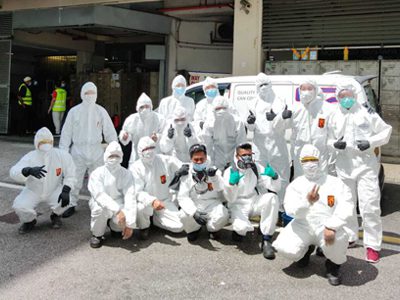
Dealing with pests in the workplace can be a real nuisance. Not only can they pose health risks to employees, but they can also damage property and harm your reputation. To maintain a clean and safe environment, it's crucial to enlist the help of professional pest management specialists. These experts have the knowledge, experience, and tools to effectively eliminate pests and prevent future infestations. Let's explore some insights from professional pest management specialists on how to keep your workplace pest-free.
The Importance of Professional Pest Management
Professional pest management is essential for any workplace to ensure a pest-free environment. Here are some reasons why you should consider hiring professional pest management specialists:
Expertise and Experience
- Professional pest management specialists have the knowledge and experience to identify different types of pests and the most effective methods to eliminate them.
- They are trained to use pesticides safely and know the regulations surrounding pest control in commercial settings.
Preventative Measures
- Professional pest management specialists can help you implement preventative measures to keep pests from entering your workplace in the first place.
- They can identify and seal entry points, remove attractants, and provide recommendations for maintaining a pest-free environment.
Common Workplace Pests
There are several pests that are commonly found in workplaces. Here are some of the most common pests and the risks they pose:
Rodents
- Rodents like mice and rats can contaminate food, spread diseases, and cause damage to property by gnawing on wires and insulation.
Insects
- Insects such as cockroaches, ants, and flies can carry diseases, contaminate food, and cause allergic reactions in some people.
Bed Bugs
- Bed bugs are small insects that feed on blood and can cause itchy bites. They are notoriously difficult to eliminate once they infest an area.
Best Practices for Pest Prevention
In addition to hiring professional pest management specialists, there are some best practices you can implement in your workplace to prevent pests:
Keep a Clean Environment
- Regularly clean and sanitize all areas of the workplace, especially break rooms and kitchens where food is prepared and stored.
- Dispose of garbage promptly and store food in sealed containers.
Maintain Proper Drainage
- Ensure that there are no leaks or standing water in the workplace, as pests like rodents and insects are attracted to moisture.
Seal Entry Points
- Inspect the workplace for any cracks or openings where pests could enter, and seal them with caulk or other appropriate materials.
Integrated Pest Management
Integrated Pest Management (IPM) is an effective and environmentally sensitive approach to pest management that relies on a combination of techniques to prevent and control pests. Here are some key components of IPM:
Monitoring
- Regularly inspect the workplace for signs of pests and their activity to identify problems early.
Prevention
- Implement preventative measures such as sealing entry points and reducing attractants to keep pests out.
Control
- If pests are present, use the least toxic methods of control first, such as traps or baits, before resorting to chemical pesticides.
Conclusion
Professional pest management specialists play a crucial role in keeping workplaces pest-free. Their expertise, experience, and knowledge of best practices are invaluable in preventing and eliminating pests. By following their insights and implementing preventative measures, you can create a clean and safe environment for your employees and customers. Remember, when it comes to pest control, it's best to leave it to the professionals.
